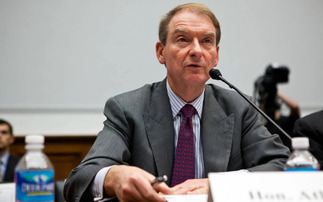Eight years after the collapse of Lehman Brothers' triggered the global financial collapse, fund managers reveal the biggest lessons learned and those which remain on the horizon and are continuing to threaten the asset management industry.
Andrew Milligan, head of global strategy, Standard Life Investments
Fighting the last war
After any crisis, there is a danger that lessons are learned, processes are altered, but the next event still comes as a major surprise.
Of course, regulation of the financial services industry has been transformed since 2008, although it would be nice to do a cost/benefit analysis to see how effective some of the gold-plated changes actually are.
Similarly, central banks are now much better equipped to examine financial stress as it builds, and have a range of macro-prudential tools to try and cope with growing imbalances.
However, in other respects, politicians and policy makers have not learned their lessons, causing increased difficulty for all investors. There were many reasons for the 2008 crash, but the seeds were sown when the US authorities allowed the housing market to over-inflate. Efforts to restore economic growth after the 2001 recession were allowed to get out of control.
Is this a tipping point towards weaker global growth?
Are we in a very different world now? While economic growth and inflation remain below government targets, the policy responses are giving cause for concern. We live in a world where many interest rates are not just low but negative. Central banks are buying government bonds, corporate bonds, REITs and equities.
The prices of many financial assets are moving well away from economic fundamentals. More worryingly, a vicious circle has developed: low interest rates are encouraging many investors to move out along the credit or risk or maturity curves simply to find the income they need.
Meanwhile, defined benefit pension fund deficits are being inflated by abnormally low discount rates, forcing companies to put more cash into schemes rather than into capital spending or hiring.
As long-term return expectations come down, investors are encouraged to trade more frequently. The pressures on fund managers are different to eight years ago, but just as profound.













